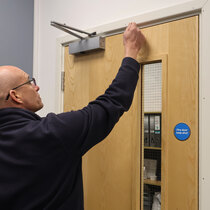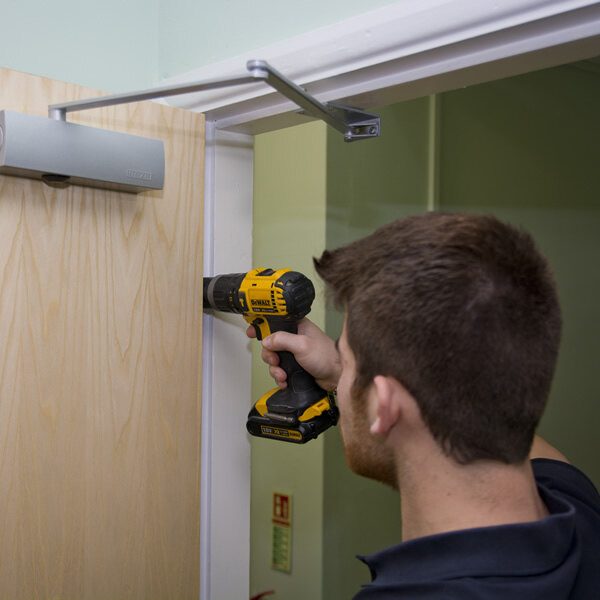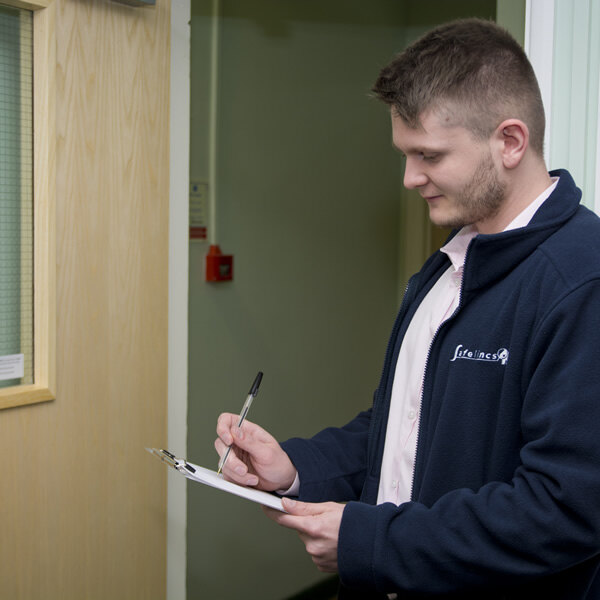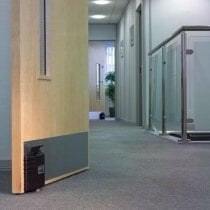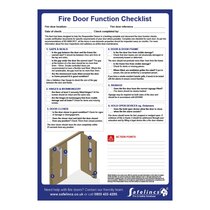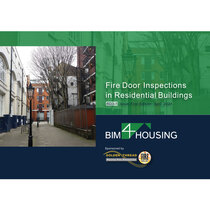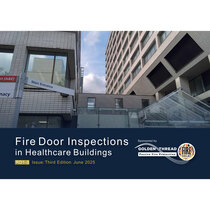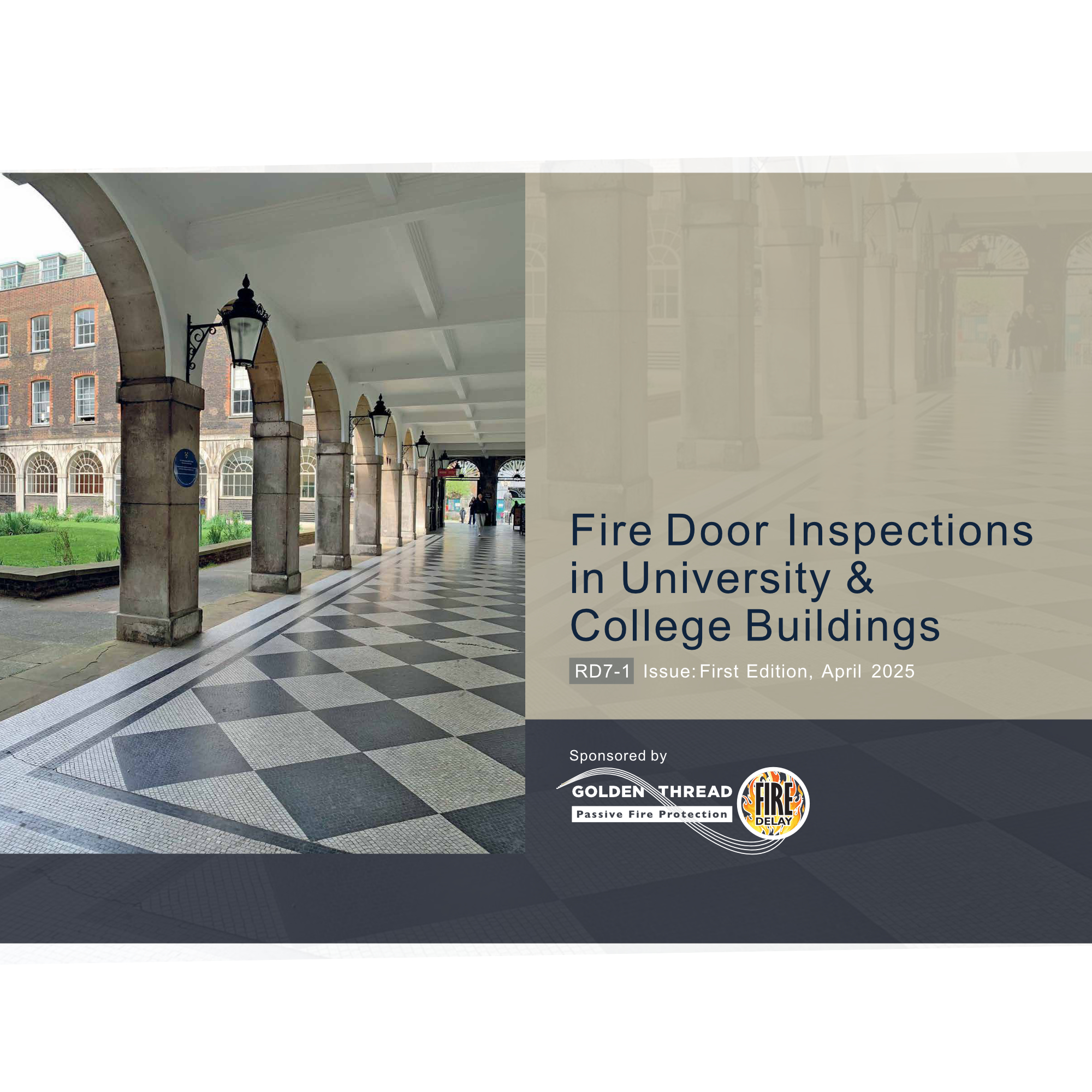-
Contact
Sales & Customer Service
0800 612 6537 support@safelincs.co.uk Live ChatDelivery Enquiries
0800 077 6149 - Resources
Fire & Safety Solutions
CALL OUR TEAM NOW 0800 433 4289
Lines open today 8am - 6pm
Expert Delivery
From £ inc VAT
Live Chat - Online
Instant help & Advice
Trade Discounts
and exclusive pricing
0% Credit Available
Open an account now
5 Star Customer Feedback
Fire Door Inspection & Installation Services
Getting fire doors right isn't just about ticking boxes. It's about creating proper barriers that work when seconds count. At Safelincs, we handle fire door installation with the precision and care your building deserves. What does fire door installation involve? Fire door installation is a specialised process that goes far beyond hanging a standard door. The installation process involves fitting the door leaf, frame and all associated hardware to precise specifications. Every component must be certified and installed exactly as the manufacturer intended. We use only doors and hardware that hold valid third-party certification, ensuring they'll perform as expected in a fire. Why choose professional fire door installation? Professional installation eliminates the guesswork that can prove catastrophic. Fire doors only work properly when every element is correctly specified and fitted. A gap that's too wide, incorrect hinges, or a poorly adjusted door closer can dramatically impact the performance of the door and could be the difference between life and death. Our engineers are well-versed in the complex regulations governing fire door installation. We ensure compliance with Building Regulations, British Standards, and fire safety legislation. This isn't just about avoiding fines - it's about protecting lives and property. You'll receive comprehensive documentation for every door we install. This includes certification, installation records, and maintenance schedules. When fire safety inspectors visit, you'll have everything needed to demonstrate compliance. How do we handle fire door installation projects? We plan the installation sequence and coordinate delivery and installation to minimise disruption to your business operations. During installation, we test every door to ensure it closes properly from any open position. We check gap measurements, adjust closing forces and verify that all hardware operates smoothly. Every door receives a final inspection before handover. What types of fire doors can we install? We install the full range of fire doors required in commercial and residential buildings. This includes standard hinged doors, double doors, and specialised applications such as PAS 24 security doors with fire ratings. Our range encompasses timber, steel, and composite fire doors, rated from FD30 to FD120. We also install fire doors with glazed panels, acoustic properties, and accessibility features. Each door is selected to meet your specific performance requirements. For high-traffic areas, we install fire doors equipped with robust hardware, specifically designed for frequent use. These include heavy-duty hinges, commercial-grade closers, and wear-resistant edge protection. The doors maintain their fire performance despite intensive daily use. How long does it take to install a fire door? Installation timescales depend on the project scope and the complexity of the building. A single door typically takes 2 to 4 hours to install and test. Larger projects involving multiple doors are scheduled to be completed in sections, with building security maintained throughout. We work efficiently to minimise disruption. Our project managers work closely with your facilities team to ensure that work proceeds smoothly without compromising daily operations. Complex installations requiring structural modifications or specialist access equipment may take longer. We'll provide detailed timescales during the survey phase, keeping you informed of progress throughout the project. What regulations govern fire door installation? Fire door installation must comply with multiple regulations and standards. Building Regulations Approved Document B outlines the requirements for fire doors in new or modified buildings, including where they are required and their performance criteria. British Standard BS 8214 provides detailed guidance on installation and maintenance. The Regulatory Reform (Fire Safety) Order 2005 places legal responsibility on building owners to maintain fire safety systems. This includes ensuring fire doors are correctly installed and maintained. Our installations meet all relevant standards, providing legal compliance and peace of mind. Can you upgrade existing doors to fire doors? Upgrading existing doors to fire-rated doors is usually not possible. Fire doors are complete systems, where every component is tested and certified as a whole. Attempting to upgrade a standard door typically compromises its fire rating and may not meet regulatory requirements. We can assess your existing doors and recommend a suitable maintenance scheme to ensure performance, or a suitable replacement if maintenance is not an option. Sometimes, doors that appear suitable lack proper certification or have been modified in ways that render their fire rating invalid. Our survey identifies these issues and provides solutions. Replacement can prove more cost-effective than attempted upgrades. New fire doors come with complete certification and warranties. Installation is typically faster and more reliable than retrofitting fire protection to existing doors. What maintenance do fire doors need after installation? Fire doors require regular maintenance to maintain their effectiveness. We provide comprehensive maintenance schedules and can handle ongoing inspections and servicing to keep your doors compliant and operational. Weekly checks by your staff ensure doors close properly and aren't propped open. Monthly inspections verify that all hardware operates correctly and door seals remain intact. British Standards recommends 6-monthly inspections to identify wear and potential issues before they become problems. We offer maintenance contracts that include regular inspections, minor adjustments, and priority response for repairs. This proactive approach prevents minor issues from escalating into significant problems, ensuring ongoing compliance with fire safety regulations. Ready to protect your building with professional fire door installation? Contact our certified engineers today for a comprehensive survey and detailed quotation. We'll ensure your fire doors provide the protection your building needs, installed to the highest standards with complete compliance documentation. Frequently Asked Questions (FAQs) How often should fire doors be professionally inspected? BS 9999 recommends that professional fire door inspections be conducted every 6 months by a competent person. However, the frequency may vary based on your building's specific risks. High-traffic areas, extreme temperatures, or locations prone to vandalism may require more frequent inspections, while low-traffic areas might require less. Our accredited inspectors can help establish the proper inspection schedule for your premises. What's the difference between fire door checks and inspections? Fire door checks are regular examinations carried out by the Responsible Person or trained staff using simple checklists. These checks should occur quarterly for communal doors and annually for flat entrance doors in residential buildings exceeding 11m in height. Inspections are comprehensive assessments conducted by qualified professionals who provide detailed reports on compliance and any necessary remedial work. Can you install Dorgard fire door retainers? Yes, we offer Dorgard installation services. Dorgard units provide a safe way to hold fire doors open in high-traffic areas for convenience, whilst automatically releasing them when the fire alarm sounds. This eliminates the common problem of doors being propped open with wedges or other objects. Do you only install fire doors purchased from Safelincs? We only install Safelincs doors - that way, we can ensure quality and compliance throughout. For doors bought through our fire door configurator, we offer a complete certified installation service carried out by qualified fire door installers. This ensures proper compartmentalisation and compliance with current regulations. What happens after a fire door inspection? Following our inspection, you'll receive a comprehensive fire door report detailing any compliance issues found. The report prioritises any follow-up work needed, helping you understand which doors require immediate attention and which can be scheduled for later maintenance. This documentation helps demonstrate compliance with fire safety regulations.
Read more about our fire door installation service...
Fire Door Inspection
Our qualified inspectors will assess the condition and performance of your fire doors. Following the inspection you will receive a comprehensive fire door report detailing any compliance issues.
- Nationwide service carried out by 3rd party certified inspectors
- Fire door inspection is tailored to your requirements and budget
- Professional service giving you peace of mind
- Full report helps you to prioritise any issues that need resolving
Fire Door Installation
For any fire doors purchased from Safelincs, we can offer a certified installation service carried out be qualified fire door installers. Fire doors should be installed correctly to ensure proper compartmentation.
- Nationwide service carried out by certified fire door installers
- Installation for all fire door sets & hardware purchased from Safelincs
- Complete fire door and frame installation available
- Experienced and knowledgeable installers
Fire Door Measuring
When purchasing new or replacement fire doors, it is critical that accurate measurements are taken to ensure compliance with regulations. Our team can measure, specify and quote for the fire doors that you require.
- Nationwide service carried out by qualified fire door surveyors
- Ensures measurements for new and replacement fire doors are accurate
- Suitable for replacing existing doors with or without frames
- Includes quotation for necessary doors and hardware
Dorgard Fire Door Retainer Installation
Enquire about our Dorgard Fire Door Retainer installation service. Once installed, the Dorgard provides a legal alternative to holding your fire doors open to provide maximum convenience in high traffic areas.
- Installation by trained and experienced engineers
- Peace of mind that your Dorgard installation is compliant
- A safe and legal solution to holding fire doors open
- Provides convenience in high-traffic areas of buildings
Free Fire Door Function Checklist – PDF Download
Download and print our free fire door inspection checklist for Responsible Persons.
- Free downloadable PDF to print
- Use one checklist per door – print as many times as you like
- Simple prompts for what to check and advice on what to look for
- Space for noting action points
Free Guide to Fire Door Inspections in Residential Buildings - PDF Download
Download and print our free guide on fire door inspections in residential buildings.
- Free downloadable PDF to print
- Support for landlords required to comply with current regulations
- A breakdown of sections for simplicity and quick reference
- Practical insights and expert recommendations
Free Guide to Fire Door Inspections for Healthcare Buildings - PDF Download
Download and print our free guide on fire door inspections in Healthcare buildings.
- Free downloadable PDF to print
- Support for responsible persons in meeting current regulatory requirements
- A structured section breakdown for clarity and easy reference
- Expert recommendations and practical insights
Free Guide to Fire Door Inspections for University & College Buildings - PDF Download
Download and print our free guide on fire door inspections in University & College settings.
- Free downloadable PDF to print
- Support for responsible persons in meeting current regulatory requirements
- A structured section breakdown for clarity and easy reference
- Expert recommendations and practical insights
How Often Should Fire Doors Be Inspected?
Fire door inspection frequency
BS 9999 states that fire door inspections should be carried out every 6 months. This refers to a more thorough fire door inspection by a competent person. Whilst BS 9999 provides a good benchmark, the frequency of these inspections may need to vary based on other factors. For example, in a new building, more frequent inspections may be required as the doors acclimatise. In a warehouse environment, fire doors may be subject to extreme temperatures and varying moisture levels and so more regular inspections may be required. In high traffic areas or areas where doors are more likely to be vandalised, more regular inspections may be needed and in areas of very little traffic, less frequent inspections may be required.
Taking a 'risk-based' approach helps to ensure that critical doors are prioritised. When doors that are likely to be in use more, are more likely to be vandalised or are high priority in terms of protecting life are inspected more regularly, this ensures any critical issues are quickly identified and attended to quickly.
Safelincs’ accredited fire door inspectors will carry out an inspection at your site anywhere in the UK. Our team will work with you to establish the best type of inspection for your premises. Following the fire door inspection you will receive a full report, detailing the priority of follow-up work (if any).
Fire door check frequency
Fire door checks should be carried out more regularly than inspections. This can be done by the Responsible Person or another nominated person who has received training on what to check for. In accordance with the Fire Safety (England) Regulations 2022, in residential buildings over 11m, fire door checks should be carried out quarterly on all communal fire doors and annually on flat entrance doors.
Regular checks can be carried out using our free fire door checklist and more information on maintenance checks can be found in our help guide on fire door maintenance.
Are Fire Door Inspections a Legal Requirement?
As fire doors are a critical part of any building’s passive fire protection, it is a legal requirement to maintain them in good working order as set out in the Regulatory Reform (Fire Safety) Order 2005 and the Fire Safety (England) Regulations 2022. The only way to ensure fire doors are maintained in line with current fire door regulations is to undertake regular inspections. These inspections should be documented and should include information on any actions taken as a result of issues being found. Responsible Persons can carry out their own regular checks on fire doors but a periodic inspection by a professional inspector is advisable.




















